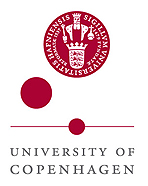Partners
FARM-CARE is a multi-actor project involving 3 higher education institutions,
3 public organisations, and 1 private company with established national and international networks that will facilitate dissemination and stakeholder involvement. Each partner brings one or more areas of expertise with clearly defined roles and responsibilities.
Participation by an LMIC partner that represents over 90% of pig farmers in Colombia will allow assessment of the farm interventions in a different production setting and capacity building in this country.
The Centre for Machine Vision (CMV) is based in the Bristol Robotics Laboratory (BRL) in the UK. The BRL is a collaborative partnership between the University of the West of England (UWE Bristol) and the University of Bristol. The CMV is represented by Melvyn Smith who is Professor of Machine Vision and Director of the CMV.
The CMV specializes in the application of machine vision and machine learning techniques to solve real-world problems, with a particular focus on agricultural technology applications, including condition monitoring and lameness detection in farm animals and, most recently, the biometric identification of both individuals and facial expressions linked to stress in pigs. The CMV team is also comprised of Mark Hansen, Associate Professor in Knowledge Exchange and External Engagement, and Antonella Camilleri Research Fellow in Machine Vision.
Porkcolombia Association is the guild that represents, since 1983, the Colombian pork producers. It promotes and accompanies the modernization process in all pork meat chain and promotes the consumption of pork.
Porkcolombia is represented in FARM-CARE by Corina Zambrano who is the director of CENIPORCINO (Center for research and technology transfer of the Colombian pork sector), which since 2016 has been recognized by the national and international scientific community for the achievements generated for the strengthening, welfare and competitiveness of producers, processors, marketers and other actors in the pig sector.
 SRUC (Scotland’s Rural College) is an innovative, knowledge based organisation, supporting the development of land-based industries and communities through our specialist research and development resources, education and training provision and expert advisory and consultancy services.
SRUC (Scotland’s Rural College) is an innovative, knowledge based organisation, supporting the development of land-based industries and communities through our specialist research and development resources, education and training provision and expert advisory and consultancy services.
The Animal and Veterinary Sciences Research Group at SRUC includes the Animal Behaviour and Welfare (ABW) team whose staff will be involved in this project. Emma Baxter is a Senior Researcher in the ABW team and leads for SRUC in this project. She specialises in pigs with projects covering challenges throughout the pig’s life cycle, with particular expertise in neonatal survival and sow welfare. The SRUC team also involves Kenny Rutherford, a Reader and specialist in animal stress, pain and other emotional states and Marianne Farish, a Senior Technician with over 25 years of experience managing large animal trials at our Pig Research Centre.
Statens Serum Institut (SSI) is under the auspices of the Danish Ministry of Health, and its main duty is to ensure preparedness against infectious diseases and biological threats as well as control of congenital disorders. SSI is represented in FARM-CARE by Jesper Larsen, who is a senior scientist at the National Reference Laboratory for Antimicrobial Resistance (NRLAR).
The NRLAR group performs surveillance and control of antibiotic-resistant bacteria in humans, including carbapenemase- and extended-spectrum beta-lactamase-producing organisms, vancomycin-resistant enterococci, and methicillin-resistant Staphylococcus aureus.
Jesper Larsen is involved in public health risk assessment of veterinary antibiotics and surveillance of antibiotic-resistant bacteria in food animals He uses epidemiological tools and genomic epidemiology to understand and trace the mechanisms behind the evolution and spread of antibiotic-resistant bacteria in wild animals, livestock, food products, and humans in a One Health perspective.
Teagasc is the Irish Agriculture and Food Development Authority and the Teagasc Pig Development Department (PDD) supports pig producers by providing research, advice and education across a range of issues of importance to the sector. The PDD is represented in FARM-CARE by Edgar Garcia Manzanilla who is a principal research officer and Head of Department.
The PDD has an extensive program of field research in collaboration with commercial farms covering different areas to improve pig health and welfare, advance in nutrition, reduce environmental impact of farms, reduce risk at work for farmers and warrant food safety by reducing antimicrobial resistance and pathogens like Salmonella. In particular, Edgar Garcia Manzanilla has expertise in epidemiological methods and antimicrobial use reduction.

Research at the University of Copenhagen Department of Veterinary and Animal Sciences (UCPH) focuses on animal and zoonotic bacterial infections, with antimicrobial resistance being a major research area.
UCPH is represented in FARM-CARE by Prof. Luca Guardabassi who is the lead of the One Health Antimicrobial Resistance (OHAR) group. The OHAR group conducts research on discovery and development of solutions for improving diagnosis and antimicrobial therapy of bacterial infections using a One Health approach based on the recognition that the health of people is connected to the health of animals.
The Institute for Hygiene and Public Health at the University Hospital Bonn brings together expertise in a broad range of areas, including water analytics and hygiene, environmental health, and hospital hygiene and infection control. The institute is comprised of the Global Health Unit and the GeoHealth Centre and hosts the German arm of the WHO Collaborating Centre for Health Promoting Water Management and Risk Communication.
The team of Professor Nico T. Mutters will be leading the FARM CARE work at UKB. This includes Dr Chantal Morel, a health economist in infectious diseases, specializing in systems responses to anti-microbial resistance across the One Health areas.

